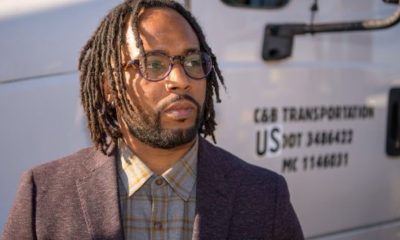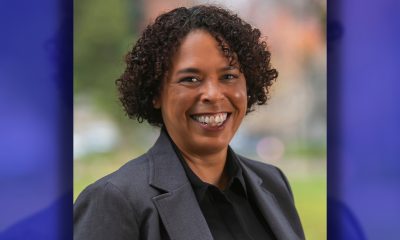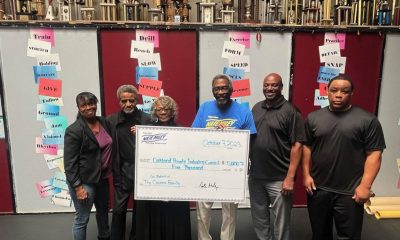Bay Area
Opinion: April 10 is Property Tax Day

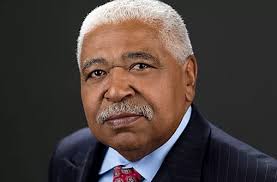
Greg McConnell
As the Coronavirus pandemic grinds on, state and local jurisdictions have enacted legislation aimed at softening the economic blow to workers, renters, and families. Measures include shoring up pay for workers, eviction moratoriums, limitations on rent increases, debt reduction, deferment or elimination, and more. Given the harsh economic consequences brought on by COVID-19, we believe these measures are necessary and appropriate.
However, while some relief is provided to tenants and small businesses, there is a group that suffers without significant help from their county governments. Homeowners, and small and large businesses have made major concessions, and in the process have incurred substantial losses, yet they get very little relief from the government when it comes to taxes.
At a recent meeting called to discuss rent limitations and eviction moratoriums, I asked a city council member, “we support protections for tenants, but can you ask the county to delay property taxes while the rent limitations are in effect?” The response was predictable. “No, we cannot delay taxes,” said the Council Member. “We need that money so the city can operate.” I responded, “everyone needs money so they can operate. How can the city ask everyone else to sacrifice, but refuse to make sacrifices itself?”
I would call this cavalier attitude shocking, but it is what I have come to expect from local government. Our leaders talk in great passionate language about everyone else sacrificing, but they do not. Former Council President Ignacio De La Fuente, called me the other night and asked, “if everyone else is suffering, why don’t our elected officials agree to donate half their salaries to COVID-19 relief programs? They should help the laid-off restaurant workers, help the nurses and other low to mid-income workers,” he said. Half their salaries won’t go too far, but why not share the misery as examples of leadership?
Back to taxes. Most of the counties have declined to delay taxes. They hide behind the excuse that only the state can delay Tax Day. However, San Francisco, under the steady leadership of Mayor London Breed, has ruled that the county is closed and therefore taxpayers need not pay property taxes until May 3. Why cannot Alameda, Contra Costa and other jurisdictions follow San Francisco’s leadership and creatively find ways to delay Tax Day.
If it is true that the state has the ultimate authority, why are not the Governor and our legislature passing laws and regulations to delay Tax Day? While counties could delay taxes under the closure rationale until May, the state could use the time to pass laws to delay Tax Day.
Recently, the California Judicial Council issued an emergency rule that prevents residential evictions, no matter the reason, for 90 days after the state-of-emergency has been lifted. If 90 days is good reprieve time for tenants, then give taxpayers 90 days delay on their taxes.
Requiring tax payments while tenants and small businesses are not paying rent is especially problematic for small property owners who have little, or no, cash reserves, and even for larger property owners that may exhaust their reserves during the pandemic. We are greatly concerned that these people may be forced out of business, with the result that even when the virus has dissipated, there will be significantly fewer places for people to work and live.
To his credit, Alameda County Treasurer-Tax Collector, Henry Levy has indicated a preference to liberally apply relief from late fees and interest for Alameda County residents who cannot pay their taxes on April 10. But that is not good enough, we need clear rules that say that taxes are not due.
If everyone else must tighten their belts, so too must cities, counties and the state. April 10 should not be Tax Day!
Greg McConnell is the President and CEO ofThe McConnell Group.
Bay Area
Vivian Coit, 98
Vivian Coit, a proud Dallas, Texas native made her way to the great state of California in 1943. She was a mother, grandmother, great-grandmother, and great-great grandmother.

Celebrating A Life Well Lived
Sept. 15, 1925 ~ March 30, 2024
Vivian Coit, a proud Dallas, Texas native made her way to the great state of California in 1943. She was a mother, grandmother, great-grandmother, and great-great grandmother.
In her 98 years, she had various jobs – San Francisco Naval Shipyard, elevator operator, housekeeping, a salesclerk, and supervisor for the United States Postal Service. After 27 years of service with the United States Postal Service, she retired with numerous commendations. She was a lifetime member of the National Council of Negro Women. and a devoted member of the Washington/Lincoln Alumni Association of Dallas, Texas.
On April 20 at 10:00 a.m., a life well-lived will be celebrated at Beebe Memorial Cathedral CME Church, 3900 Telegraph Ave., Oakland, CA under the leadership of Rev. Antoine Shyne.
Bay Area
Rich Lyons, Longtime Campus Business, Innovation Leader, Will Be UC Berkeley’s Next Chancellor
Rich Lyons, an established economist, former dean of the Haas School of Business and the campus’s current leader for innovation and entrepreneurship, will become the next chancellor at the University of California, Berkeley, the UC Board of Regents announced on April 10.
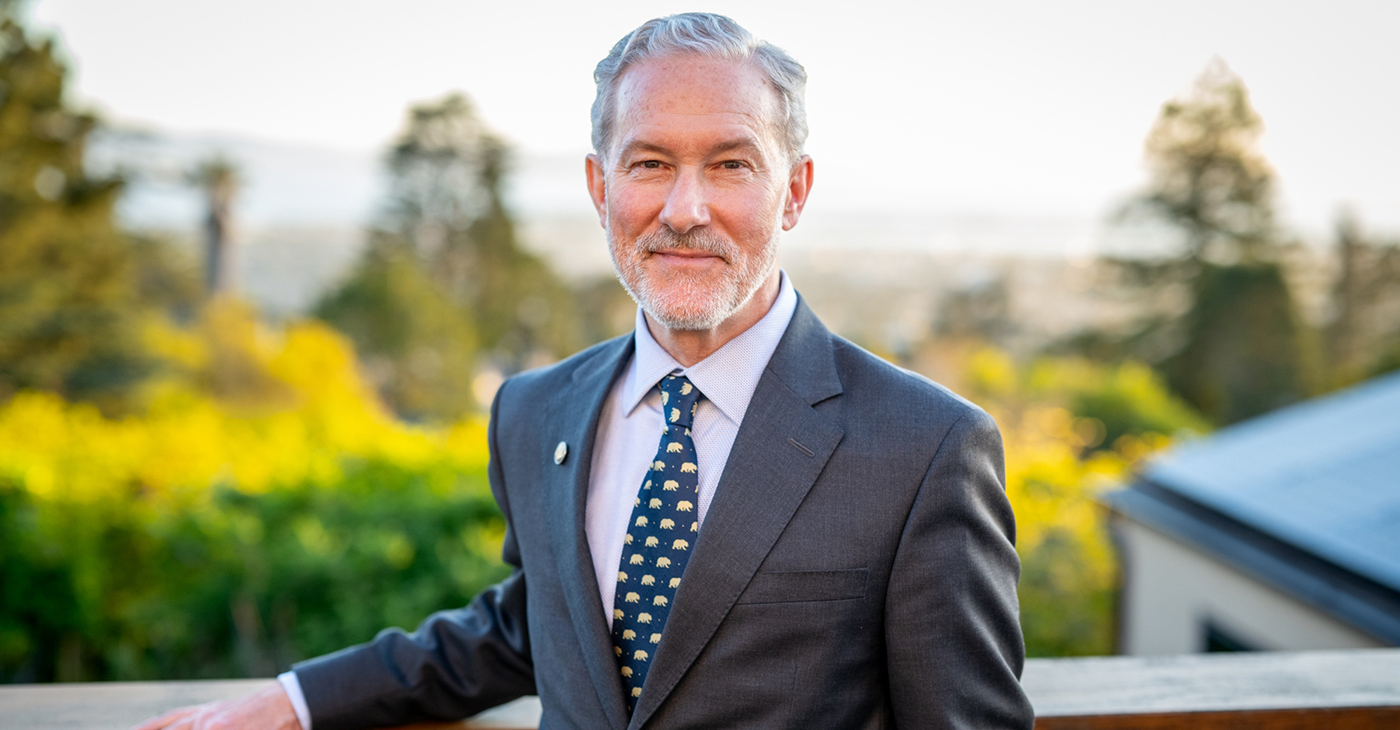
By Jason Pohl
Rich Lyons, an established economist, former dean of the Haas School of Business and the campus’s current leader for innovation and entrepreneurship, will become the next chancellor at the University of California, Berkeley, the UC Board of Regents announced on April 10.
The board’s unanimous confirmation makes Lyons, 63, the first UC Berkeley undergraduate alumnus since 1930 to become the campus’s top leader. In an interview this week, Lyons said he credits his Berkeley roots and his campus mentors with encouraging him to ask big questions, advance institutional culture and enhance public education — all priorities of his for the years to come.
Lyons, who will be Berkeley’s 12th chancellor, will succeed Chancellor Carol Christ, who announced last year that she’d step down as chancellor on July 1.
“I am both thrilled and reassured by this excellent choice. In so many ways, Rich embodies Berkeley’s very best attributes, and his dedication to the university’s public mission and values could not be stronger,” Christ said. “I am confident he will bring to the office visionary aspirations for Berkeley’s future that are informed by, and deeply respectful of, our past.”
Rising through the Berkeley ranks
Born in 1961, Lyons grew up in Los Altos in the early days of the Silicon Valley start-up boom.
He attended Berkeley, where he graduated in 1982 with a Bachelor of Science degree in business and finance. Lyons went on to earn his Ph.D. in 1987 in economics from MIT. After six years teaching at Columbia Business School, Lyons returned west, where in 1993 he joined the Berkeley faculty as a professor of economics and finance, specializing in the study of international finance and global exchange rates.
He’s remained on campus since, with one notable exception.
Starting in 2006, Lyons spent two years working at Goldman Sachs as the chief learning officer. It was a period that instilled in him an appreciation for leadership and the importance of organizational culture.
He carried those lessons with him when he returned to campus in 2008 and became the dean of the Haas School of Business.
While dean, Lyons oversaw the construction of Connie & Kevin Chou Hall, a state-of-the-art academic building that opened in 2017 and is celebrated for its sustainability. He also helped establish two new degree programs, linking the business school with both the College of Engineering and the Department of Molecular and Cell Biology.
But it was his creation of four distinct defining leadership principles that spurred a sweeping culture initiative at the school that stands out in the minds of many. Those values — question the status quo, confidence without attitude, students always, and beyond yourself — became a creed of sorts for new students and alumni alike.
Those values are important, Lyons said, because they shape and support the cohesive structure of a strong, connected community — spanning science and technology to the arts and humanities. They also convey the story about what it means to be at Berkeley and to believe in the university’s public mission.
“When we are great as educators, it’s identity-making,” Lyons said. “We’re helping students and others see identities in themselves that they couldn’t see.”
Lyons in January 2020 became Berkeley’s first-ever chief officer of innovation and entrepreneurship.
Building on his research exploring how leaders drive innovation and set behavioral norms and culture, Lyons worked to expand and champion Berkeley’s rich portfolio of innovation and entrepreneurship activities for the benefit of students, faculty, staff, startups and external partners.
It was a major commitment to thinking outside the box, he said. One need only look to the Berkeley Changemaker program that he helped launch in 2020 to see innovation and entrepreneurship in action.
The campuswide program with some 30 courses tells the story of what Berkeley is — the story that members of the Berkeley community can tell long into the future. Berkeley Changemaker started as an idea and its courses quickly became among the most popular academic offerings on campus.
“Over 500 students showed up,” he said. “Why? Because it’s a narrative. It’s not just a name. It’s not just a curriculum. It’s not just a course. It’s a way of living, and it’s a way of living that Berkeley has occupied forever. This idea that there’s got to be a better way to do this, question the status quo.”
Activism
Oakland’s ‘Green the Church,’ Others, Host a Climate Revival
On April 20, Oakland’s Green The Church California (GTC) and the Center For Food, Faith and Justice will celebrate Earth Day and present a Climate Revival event titled “Growing Healthy Communities From Soil To The Soul” at McGee Avenue Baptist Church at 1640 Stuart St, Berkeley, CA. The day will include inspiring talks, interactive workshops, networking opportunities, and a special panel on Food Sovereignty and Global Food Resilience.
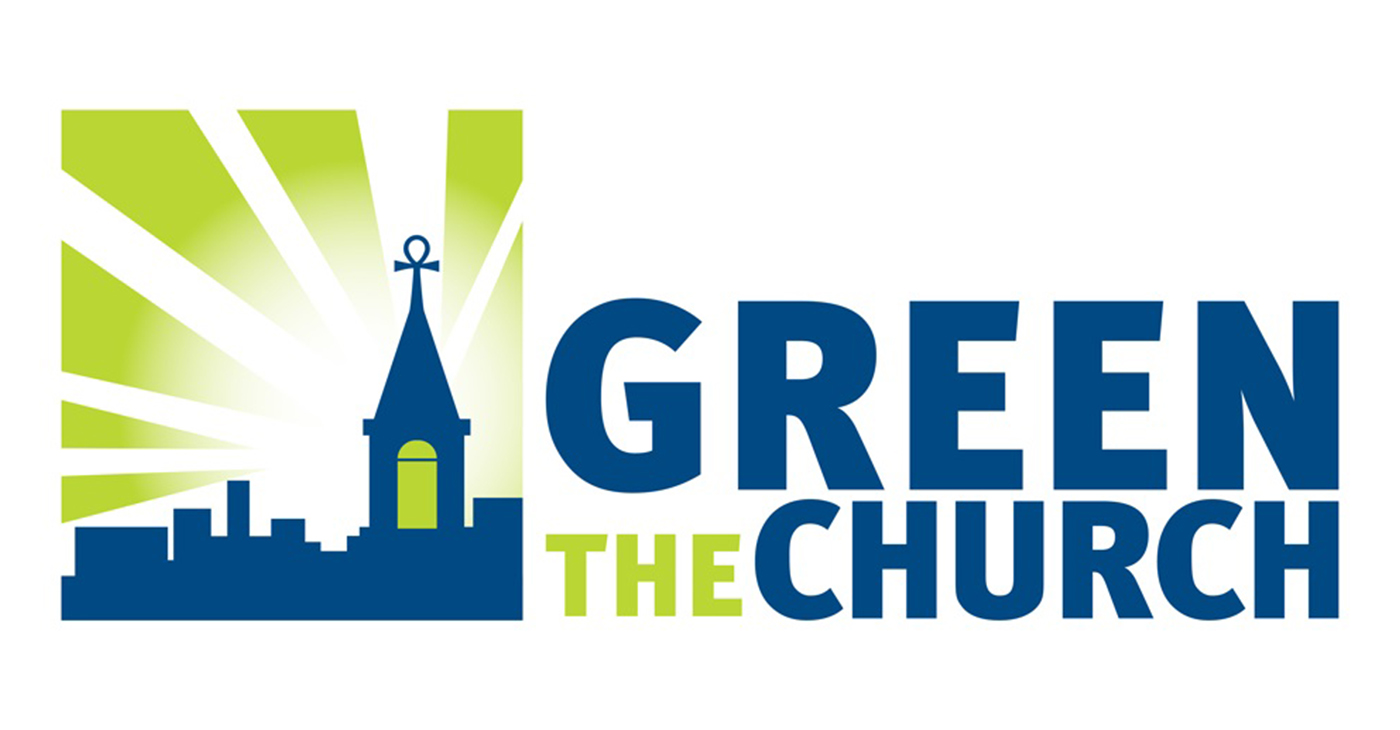
Growing Healthy Communities from Soil to the Soul in Berkeley
By Y’Anad Burrell
On April 20, Oakland’s Green The Church California (GTC) and the Center For Food, Faith and Justice will celebrate Earth Day and present a Climate Revival event titled “Growing Healthy Communities From Soil To The Soul” at McGee Avenue Baptist Church at 1640 Stuart St, Berkeley, CA,
The day will include inspiring talks, interactive workshops, networking opportunities, and a special panel on Food Sovereignty and Global Food Resilience.
The keynote speaker is Rev. Danté R. Quick, PhD, senior pastor of First Baptist Church of Lincoln Gardens in Somerset, N.J. Quick is well known in the Bay Area, having served for more than 10 years as pastor of Friendship Missionary Baptist Church in Vallejo, CA.
Green The Church, founded in 2010 by Rev. Dr. Ambrose Carroll, Sr., and headquartered in Oakland, helps galvanize Black churches and their local communities and leaders to address issues critical to populations historically disengaged from conversations around pollution and health, climate change, and sustainability and energy efficiency.
The organization collaborates with major environmental, sustainability, food security, faith, and community-based non-profit organizations, and is committed to “creation justice”—care and justice for God’s people and the planet—and building the Beloved Community.
Environmental justice has long been a pressing concern for communities of color who bear the brunt of pollution and ecological degradation. Climate change exacerbates these issues, disproportionately impacting vulnerable communities. Recognizing this urgency, Black churches across the country are taking action.
With deep roots in the African American community and its commitment to social justice, the Black Church has become an essential advocate for sustainable practices and policies.
Over the past 14 years, in a powerful collaboration with significant environmental, sustainability, food security, faith, and community-based non-profit organizations, GTC has created a cadre of Black churches engaging in the environmental justice, climate, and sustainability movement.
GTC presently works with more than 1,000 pastors and congregations across the U.S., and groups in the Bahamas, Ghana, Nigeria, and the UK, showing that we can make a difference together.
The partnership between environmental justice advocates and the Black Church extends beyond individual congregations. Green The Church provides resources and support for faith communities seeking to address climate change and promote environmental justice.
Through collaboration, initiatives such as energy efficiency programs, solar installations, and environmental education have been implemented in Black churches nationwide. These efforts reduce the carbon footprint and save money on energy bills, benefiting the congregations and their communities.
The involvement of the Black Church in the fight against climate change is not just a participation, it’s a powerful message that galvanizes action across communities.
By integrating environmental justice into their ministry, Black churches are demonstrating that addressing climate change is not only a matter of science but also of social and moral responsibility, inspiring change at a grassroots level.
For more information, go to: www.greenthechurch.org.
-

 Activism4 weeks ago
Activism4 weeks agoOakland Post: Week of March 20 – 26, 2024
-

 #NNPA BlackPress3 weeks ago
#NNPA BlackPress3 weeks agoCOMMENTARY: D.C. Crime Bill Fails to Address Root Causes of Violence and Incarceration
-

 #NNPA BlackPress3 weeks ago
#NNPA BlackPress3 weeks agoMayor, City Council President React to May 31 Closing of Birmingham-Southern College
-

 #NNPA BlackPress3 weeks ago
#NNPA BlackPress3 weeks agoCOMMENTARY: Lady Day and The Lights!
-

 #NNPA BlackPress3 weeks ago
#NNPA BlackPress3 weeks agoFrom Raids to Revelations: The Dark Turn in Sean ‘Diddy’ Combs’ Saga
-

 #NNPA BlackPress3 weeks ago
#NNPA BlackPress3 weeks agoBaltimore Key Bridge Catastrophe: A City’s Heartbreak and a Nation’s Alarm
-

 #NNPA BlackPress3 weeks ago
#NNPA BlackPress3 weeks agoBaltimore’s Key Bridge Struck by Ship, Collapses into Water
-

 Activism3 weeks ago
Activism3 weeks agoOakland Post: Week of March 27 – April 2, 2024

